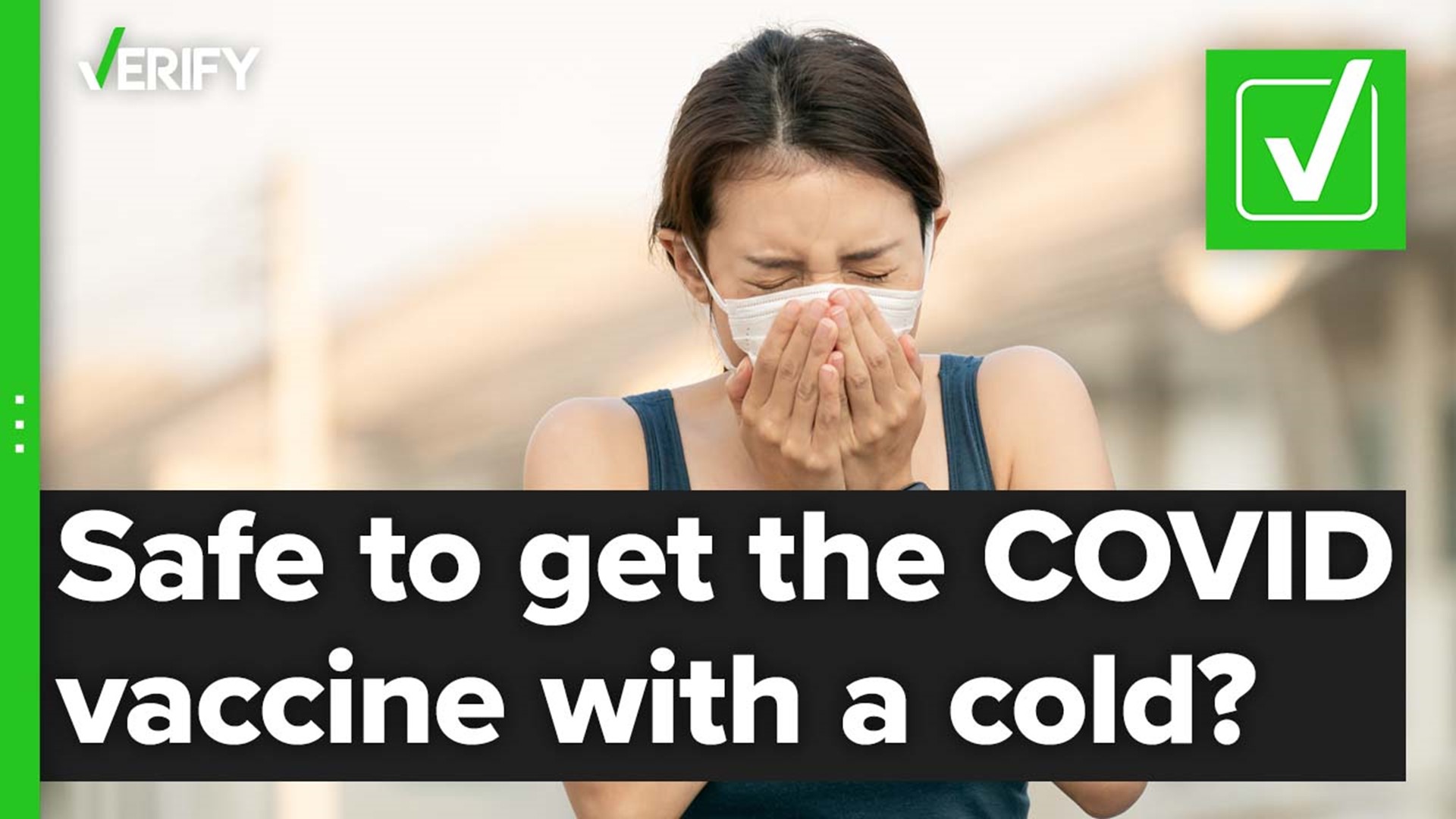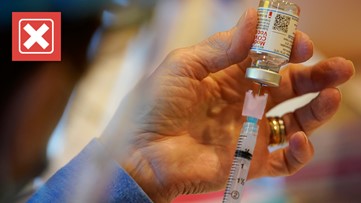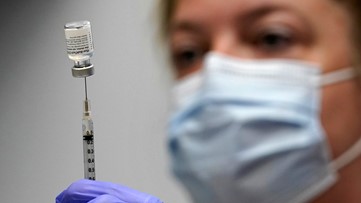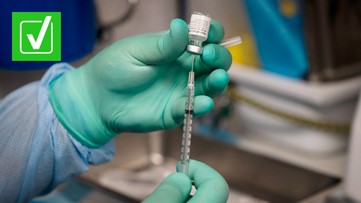In the weeks since the omicron variant was named a variant of concern, the White House says the country recorded its highest weekly number of vaccine shots since May — 12.5 million total. Booster shot numbers are also surging. During a Dec. 7 press briefing, White House COVID-19 response coordinator Jeff Zients said in the last week, nearly 7 million people have received their booster shot.
“That’s a million booster shots in arms a day. And that’s more people getting a booster shot per day than ever before,” said Zients. “People are responding to the doctors’ clear message that boosters give you the highest protection yet and that you should go get your booster shot as soon as possible.”
With cold and flu season currently underway in the U.S., recent online searches show people are wondering if they can get their booster shot if they are feeling sick with a cold.
THE QUESTION
Is it safe to get the COVID-19 vaccine booster if you have a cold?
THE SOURCES
- Centers for Disease Control and Prevention (CDC)
- The White House
- Dr. Katrina Miller Parrish, family physician and the chief quality and information executive at L.A. Care Health Plan
- Dr. William Schaffner, professor of preventive medicine and medicine at the Vanderbilt University School of Medicine in Nashville, Tennessee
THE ANSWER
Yes, it’s safe to get the COVID-19 vaccine booster if you have mild cold symptoms.
Doctors say if you have moderate to severe cold symptoms or the flu, you should contact your health care provider by phone or video to get their advice before going to get vaccinated. If you have been exposed to COVID-19 or are currently sick with COVID-19, doctors and the CDC say you should wait until you have recovered before receiving the vaccine.
WHAT WE FOUND
People with a mild short-term illness, such as the common cold, can safely get vaccinated or receive their booster shot, according to the Centers for Disease Control and Prevention (CDC). Dr. Katrina Miller Parrish told VERIFY mild cold symptoms include a runny nose, a scratchy throat or minor aches. Both Parrish and Dr. William Schaffner agree it’s safe to get your booster if you’re experiencing mild symptoms.
“If you have mild symptoms of a cold, and are just feeling a little bit out of sorts, it's perfectly fine to go ahead and get your influenza vaccination or your COVID vaccination. Whether it's your first dose or your third, it doesn't matter — go ahead, get that vaccine,” said Schaffner.
If you have moderate or severe cold or flu symptoms, like a fever over 100 degrees, Schaffner says you should contact your health care provider by phone, video or email to get their advice before going to get the vaccine or booster. The CDC considers a moderate or severe short-term illness, such as pneumonia or flu, as a “precaution to vaccination.” The public health agency says your health care provider may recommend delaying vaccination until you have recovered.
“There are two main times when you should not go get the vaccine. One of them is pretty obvious because if you are so sick that you can barely get out the door, it’s probably not a good time to be going out in public and probably not a good time to get the vaccine,” said Parrish.
“The other situation is when you have COVID, or if you've been exposed to COVID. If you've been exposed, and you think you might expose other people, it’s not a good time to go out,” Parrish added. “That's the time where we want you to shelter in place, stay in your home, try to minimize contact with others. And definitely, if you get sick with COVID, you have to let it run its course before you go out of your door.”
The CDC also says people with an asymptomatic case of COVID-19 should also wait until they meet the criteria for discontinuing isolation or quarantine before getting vaccinated.
“If you have had a close exposure, and you're very concerned that you could actually have the virus in your system, even with a negative test, I would still say be careful, stay at home, conceivably wait a day or two and take the test again,” said Parrish.
If you are currently sick and have questions about getting vaccinated, the CDC, Parrish and Schaffner all recommend reaching out to your health care provider by phone or through video to get their medical advice. They also encouraged everyone to get vaccinated or get their booster.
“Remember, a vaccine deferred is often a vaccine never received. So put it on your to-do list and do it,” said Schaffner.
More from VERIFY: No, there isn’t a new test to detect the omicron variant












